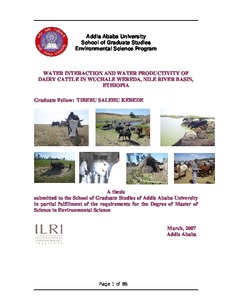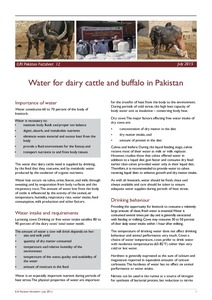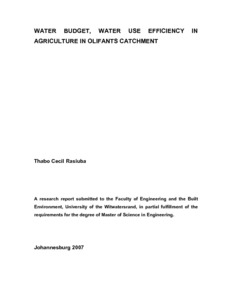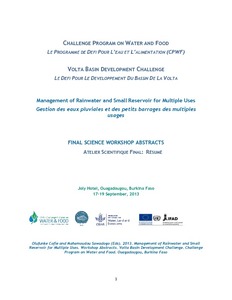Water interaction and water productivity of dairy cattle in Wuchale Wereda, Nile River Basin, Ethiopia
Livestock interact with the environment directly or indirectly in the process of their production. The interaction with the water resources is also direct or indirect and can be positive or negative depending on the system of production. In the study area of this work, the mixed croplivestock production is the main type of livestock production by smallhoder subsistence farmers where cattle are reared for dairying. The study was done as a case study of two selected PA’s of the wereda. One part of this research was to describe the dairy cattle water interaction.








